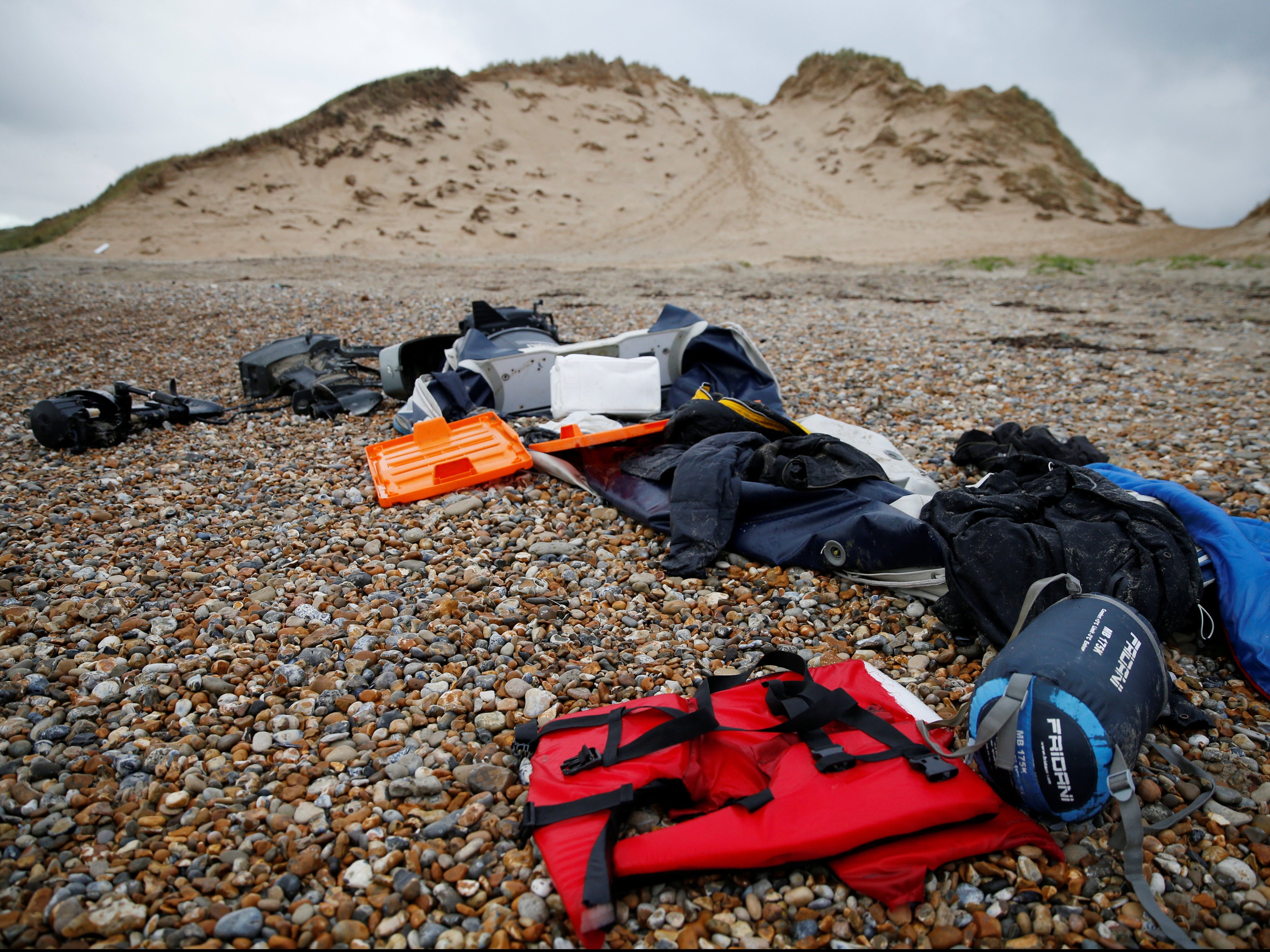Migrants stranded in France don’t know where to turn as they plan for Channel crossing
‘I have nowhere else to go,’ 40-year-old from Sudan hoping to start new life in Britain says

Your support helps us to tell the story
From reproductive rights to climate change to Big Tech, The Independent is on the ground when the story is developing. Whether it's investigating the financials of Elon Musk's pro-Trump PAC or producing our latest documentary, 'The A Word', which shines a light on the American women fighting for reproductive rights, we know how important it is to parse out the facts from the messaging.
At such a critical moment in US history, we need reporters on the ground. Your donation allows us to keep sending journalists to speak to both sides of the story.
The Independent is trusted by Americans across the entire political spectrum. And unlike many other quality news outlets, we choose not to lock Americans out of our reporting and analysis with paywalls. We believe quality journalism should be available to everyone, paid for by those who can afford it.
Your support makes all the difference.Migrants determined to make the crossing to the UK say they do not know where to turn, with available options either “difficult” or “dangerous”.
People in Calais hoping to one day to reach England told The Independent that those going by lorry often end up being stopped by police but the journey across the Channel by boat feels perilous – especially in the cold weather.
They continued to wait for their turn to make the crossing the day after 27 people – including three children – died when their inflatable dinghy sunk in the Channel.
“I’ve got nowhere else to go,” one man who fled Sudan years ago, said.
Life appeared to return to normal in Calais despite the tragedy the day before, as much of the day-to-day challenges of life stranded in northern France remained.
Although the atmosphere was described as “sombre”, men who had fled countries including Afghanistan and Sudan gathered to receive food and hot drinks, play football and get haircuts in the cold afternoon.
They told The Independent of their plans to reach England, where they wanted to work, study and get married – despite the difficult journey that entailed.
“By boat is dangerous, by car is difficult,” the man from Sudan said.
The recent tragedy – which saw 17 men, seven women and three children drown while trying to reach the UK – has sparked calls for the government to review its approach to crossings.
Campaigners have accused the government of being “complicit” with people smugglers by forcing migrants into dangerous routes with its security measures.

Priti Patel, the UK’s home secretary, told parliament on Thursday she had “not ruled anything out” in terms of “toughness” as part of efforts to stem the growing flow of people crossing the Channel in small boats.
Boris Johnson also rejected pleas to provide safe routes for refugees hoping to reach the UK from continental Europe.
Migrants in Calais told The Independent they had to decide whether to travel to the UK by lorry or by boat – with each journey having its own risks.
One young man, who had fled from Afghanistan, told The Independent he felt that hiding in a lorry was the best way to make the attempt, but “this was difficult because of police”.
But, speaking about going by boat instead, he said: “How is this good? Are you watching this?”
Another man who had been in Calais for several months told The Independent it was “too difficult” to go by boat now, as it was too cold.
The 40-year-old from Sudan said he was now going to take a chance on travelling by car.
He hoped that finally making it to England would be the end of his seven-year attempt to find a home in Europe, which saw him live in Sweden and Germany; both countries rejected his asylum claims.
Matthew Cowling, an aid worker in Calais, said the situation was “very difficult for refugees, with police carrying out evictions where people have set up camp daily.
“The weather in Calais is difficult, it is getting very cold at night and there are hundreds of men sleeping rough,” he added.
He said the atmosphere was “sombre” on Thursday, after the tragedy.
Two men – one from Iraq and one from Somalia – were found with hypothermia from the shipwreck and were its sole survivors, France’s interior minister said on Thursday.
Gerald Darmanin told French media five suspected people smugglers have been arrested in connection with the incident.
The boat was believed to have left from the Dunkirk area, where – as well as Calais and Paris – a vigil was held for the victims on Thursday evening.

Locals gathered to light candles at a monument overlooking the water in the northern French city.
“Everyone is completely shocked by what happened,” Jean Sunan told The Independent at the Dunkirk vigil, where candles were lit at a monument overlooking the water.
“There have been deaths before, but 30-odd, that’s the first time that has happened.”
On the other side of the Channel, aid workers said they were concerned another tragedy could be on the horizon without any changes.
Migrants wrapped up warm in Dover after making the crossing the day after the deadly shipwreck.
Meanwhile, migrants in Calais continued to speak of their hopes for life in the UK.
The 40-year-old from Sudan told The Independent he wanted to work as a chef in a restaurant and get married, while a young man from the same country said he wanted to study English.
Another, who said it was too dangerous to remain in Dakar, said he wanted to come to England for education. “Everything is good in England,” he added.
Join our commenting forum
Join thought-provoking conversations, follow other Independent readers and see their replies
0Comments